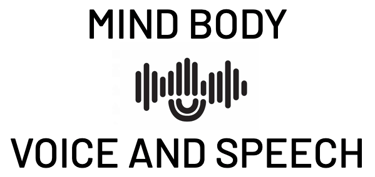

Symptoms
Symptoms of a vocal injury can include:
Change in voice quality, including: hoarseness, raspiness, breathiness, strain or strangle, or loss of voice
Reduced pitch range, or breaks in pitch
Reduced ability to project voice
Increase in effort to speak or sing, fatigue, or reduced stamina
Repeated throat clearing or coughing
Sensation of soreness, pain, or lump in the throat
Our Unique Approach
Voice therapy at Mind Body Voice and Speech is tailored to your individual need. Treatment focuses on increasing awareness of your habits and making appropriate changes. You will learn to coordinate breathing and voicing to create a clear voice and eliminate strain in the throat. Techniques include gentle strengthening exercises, stretches, breathing, and different ways to produce voice in the most efficient and comfortable manner.
Our approaches include:
Vocal Hygiene
Lessac-Madsen Resonant Voice Therapy
Casper Stone Confidential Flow Therapy
Semi-Occluded Vocal Tract Exercises
Vocal Function Exercises
Conversation Training Therapy
Accent Method
Estill Voice Training®
Lee-Silverman Voice Therapy (LSVT) LOUD®
Overview
A voice disorder, or dysphonia, can occur from a physical change (e.g. vocal nodules and polyps, laryngitis), neurologic injury (e.g. vocal fold paralysis, Parkinson's disease) or behavioral factors (e.g. dysphonia caused by stress or excessive voice use).
Therapy focuses on developing more efficient habits and training a better way of speaking or singing. Therapy is often the preferred method over surgery, or can be done in conjunction with surgery to create the best results.
